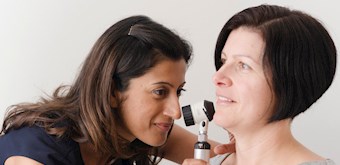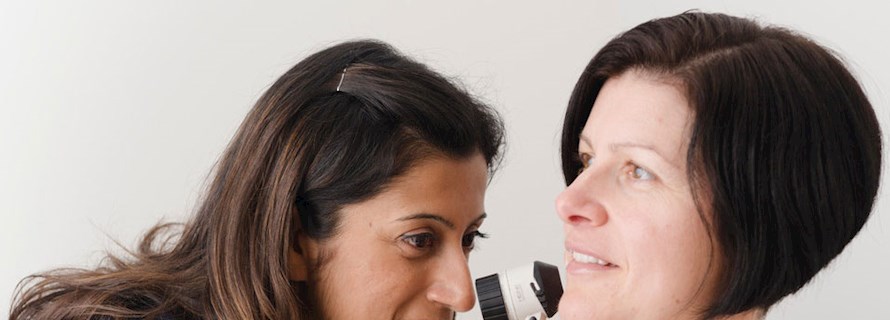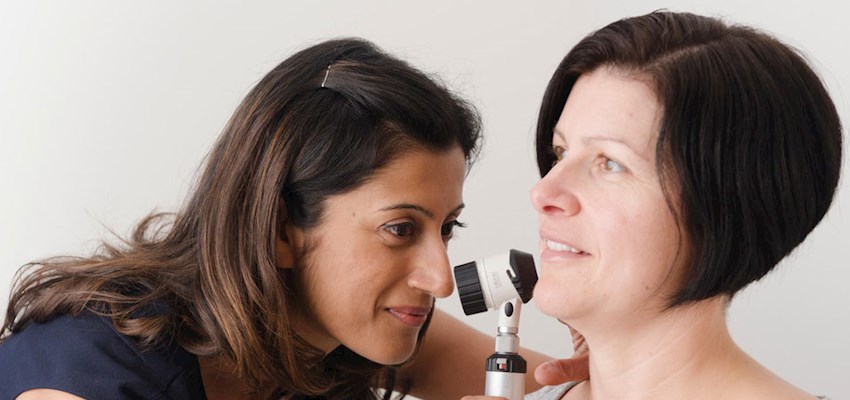Private Skin Tag Removal in London
Removal of an abnormal growth on the skin
Treatment to remove a skin tag if it's causing discomfort or concern.
What is a skin tag?
Common skin tags include:
- Moles
- Freckles
- Birthmarks
- Cysts
- Warts & skin tags.
Although they're usually harmless (benign), you may have a lesion removed for cosmetic reasons or as a precaution against skin cancer.
You may also have a skin tag removed to diagnose or treat skin cancer.
Need to know
-
Treatment to remove a skin tag icon plus
An excision of a skin tag is usually a short procedure and you will not need to admitted to hospital.
Depending on the type of skin tag you have, your consultant may remove the lesion completely using specialised surgical scissors or remove it using a laser, a precise electric current called electrodesiccation. In some circumstances it is possible to have more than one lesion removed at once.
When removing a skin tag you will be given a local anaesthetic to numb the area before the procedure, afterwards your consultant will then treat the area to minimise scarring. This could include closing it with stitches and applying a dressing. Or, if the lesion was very small, simply leaving it to heal.
The tissue removed may be sent to be analysed if there is concern that it may be cancerous. -
How to prepare for an excision icon plus
Your consultant will talk you through how to prepare for your procedure and answer any questions you may have.
It’s important to tell your consultant about any medications you’re taking, particularly any blood-thinning tablets such as aspirin. Aspirin-based medicines can make the area more likely to bleed. For this reason, your consultant might also suggest avoiding alcohol in the days leading up to surgery.
Like all procedures, there may be some risks and side effects involved. Your consultant will explain these to you. -
After an excision icon plus
You should be able to go home the same day as your appointment. Your consultant will explain how to care for the area in the days and weeks following the procedure for the best cosmetic result. If you've had stitches, they'll let you know if you need to return to have them removed. If the tissue removed has been sent for analysis, your consultant will contact you if any further treatment is needed. -
What if my wound doesn't heal as expected? icon plus
You will be given advice on how to look after the area by your consultant after treatment, if you are unsure about how the wound is healing, if your in pain, have excess itching or a excess skin forms over the wound your consultant will exam the area in a follow up consultation. It can take some time for the wound to heal fully underneath the surface skin and for any scarring to settle. Your consultant may perform scar revision treatment to improve the texture and size of scars, as well as to reduce the itch sensation.
Paying for medical treatment
Our consultants
The specialist that undertakes your excision can often be determined by where the lesion is sited and if there are any associated medical conditions. Excision surgery can be performed by a General Surgeon or a Dermatologist with surgical expertise and can also include an ENT surgeon or Maxillofacial Surgeon if the lesion is around the head, neck or facial area.
We're proud to work with leading experts across a range of medical fields, whose skills are matched by their integrity and compassion.




Our skin tag removal locations
From complex dermatological surgery to investigations and minor procedures, we provide exceptional skin care across out network of hospitals, outpatient centres and specialist clinics.
Book an appointment
Our team can help with any enquiries or you can make an appointment with one of our experienced consultants.
Call us today
020 7079 4344